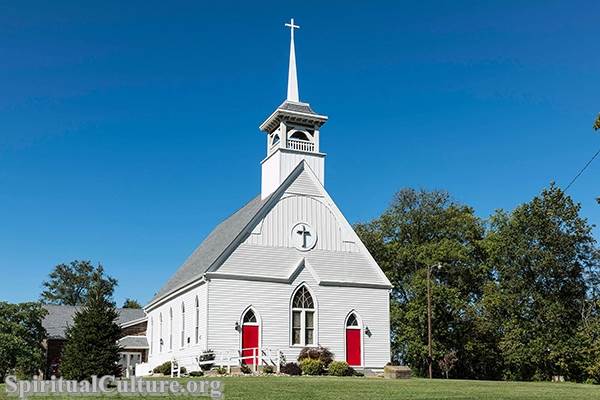The Protestant Reformation was led by figures such as Martin Luther, John Calvin, and Henry VIII, who sought to return to the original principles of Christianity as outlined in the Bible.
One of the key beliefs of Protestantism is the idea of “justification by faith alone,” which means that salvation comes through faith in Jesus alone and not through good works or the sacraments of the Catholic Church. Protestants also reject the authority of the Pope and believe in the priesthood of all believers, giving greater importance to the Bible as the ultimate authority for Christian belief and practice.

Protestantism has many different branches, each with its own distinct beliefs and practices. Some of the main branches include:
- Lutheranism, which was founded by Martin Luther and is the largest protestant denomination in the world
- Calvinism, which John Calvin founded, emphasizes predestination and the sovereignty of God
- Anglicanism, which King Henry VIII of England established as a separate Church from Rome, is present in the countries of the former British Empire
- Methodism, which John and Charles Wesley founded, emphasizes personal piety and social justice.
Protestantism has significantly shaped the Western world’s religious, political, and social landscape, including establishing religious freedom, developing democratic government systems, and the rise of capitalist economies.
Protestantism has also had a significant impact on the cultural and intellectual development of the Western world. Many Protestant denominations strongly emphasized education and literacy, establishing schools and universities and translating the Bible into vernacular languages, facilitating the spread of knowledge and the development of critical thinking.
Protestantism has also been a major force in developing the arts, literature, and music. Protestant hymns and hymnals were an important source of inspiration for many composers, painters, and poets. Many Protestant denominations also championed the development of the printing press and the dissemination of books, contributing to the spread of knowledge and the democratization of information.
Protestantism has also played an important role in developing missions and spreading Christianity to other parts of the world. Many Protestant denominations have established mission societies and sent missionaries to other countries to share the gospel and establish Christian communities. This led to the growth of many Protestant denominations in places such as Africa, Asia, and Latin America.
In recent times, Protestantism has experienced significant growth and change. Some denominations have become more conservative, and others have become more liberal. Protestantism has also experienced a significant decline in certain regions of the world, particularly in Europe. However, it remains a vital and diverse movement with millions of followers worldwide.


